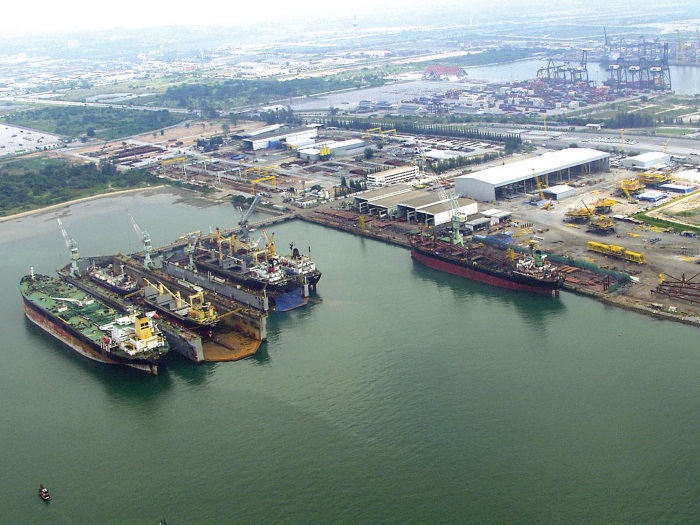New Delhi: the Union ministry of shipping has proposed a joint venture between state-run Shipping Corporation of India (SCI) and a public sector oil marketing company for manufacturing very large oil tankers, said three people aware of the development.
Indian Oil Corporation Ltd (IOCL), the largest OMC and refiner in the country, is being considered as the preferred entity for forging the joint-venture with SCI.
India currently has less than 1% share of global shipbuilding market
India, which has never made an oil tanker, currently has less than 1% share of the global shipbuilding market, which is dominated by China, South Korea and Japan.
The move is line with the government’s ‘Atmanirbhar Bharat’ agenda that aims to develop India’s manufacturing sector. It will also ensure energy security as indigenous Very Large Crude Containers (VLCCs) or oil tankers would allow India to lower its dependence on foreign ships and insurance entities while reducing the risk of sanctions in war-like situations from impacting operations.
“It is felt that all the key aspects like leasing, operations and insurance should be handled by Indian companies. The shipping ministry has put in a proposal for developing VLCCs in the country with joint venture between SCI and an oil company,” said one of the three people mentioned above, adding that the proposal is being considered by stakeholders, including the ministry of petroleum and natural gas.
Another person said that although the proposal is on the table for consideration, it is at an early stage and would need time to take a concrete shape.
“The infrastructure for building these large VLCCs would also be required to be set up in the country,” said the second person.
India is the third largest importer of crude oil after the US and China, and the proposal for making oil tankers comes at a time when wars and conflicts have led to persistent supply concerns for oil, resulting in frequent volatility in the energy market.
Further, recent Western sanctions on ships carrying Russian oil have also intensified concerns. Russia has emerged as the top supplier of oil to India in the past couple of years catering about 35% of its oil imports.
Attacks on several global shipments at the Strait of Hormuz and the Red Sea area have also driven home the need for a home-grown fleet with operations and insurance being handled by Indian companies.
Shipbuilding is a key feature of the Centre’s Maritime Indian Vision 2030. The vision document noted that shipbuilding is an industry with a unique feature – it has nearly 65% value addition coming from other technology and ancillary industries such as steel, electronics, engineering, and port infrastructure.
“Being an order-driven industry where each vessel is custom built, building an orderbook is essential for growth and sustenance of the shipbuilding industry. India has demonstrated strong shipbuilding capability in past with several shipyards delivering good quality vessels globally,” it said.
However, Indian shipyards are struggling against a global downturn and competition with protectionist measures, it noted, adding that during early 2000s, the Indian shipbuilding industry produced over 300,000 Gross Tonnage (GT) and ranked among the top 10 in the world.
The global downturn in the shipbuilding industry significantly impacted Indian shipyards with India’s share in global market declining to less than 1%.
India currently has 28 shipyards, 6 under the Central public sector, 2 under state governments and 20 private sector. Although Indian companies have been in the shipbuilding business, large oil tankers have not yet been manufactured in the country.
China, Japan and South Korea are among the top suppliers of VLCCs.
According to a recent report by KPMG, India’s net potential commercial shipbuilding market up to 2047 is estimated at $62 billion.
The third person cited above said that as the plan for developing oil tankers is a long-term plan, for the immediate requirements, the state-run refiners are looking at long-term charter of ships.
“So far there are only a few ships which have been charter for longer term, but now the focus is having more long charter ships,” the person added.
Queries sent to the ministries of shipping and petroleum, Shipping Corporation of India and Indian Oil remained unanswered till press time.
As per shipping ministry data, on 31 December 2022, India had a fleet strength of 1,520 vessels with Gross Tonnage (GT) of 13.69 million GT as compared with 1,491 vessels and 12.99 million GT at the end of December, 2021.
This reflects a net addition of 29 vessels with an increase of 0.7 million GT during the calendar year 2022. Directorate general of shipping data shows marginal growth in shipping fleet to around 1,530 vessels by December, 2023 and gross tonnage rising to around 14 million GT.
Source: Livemint






